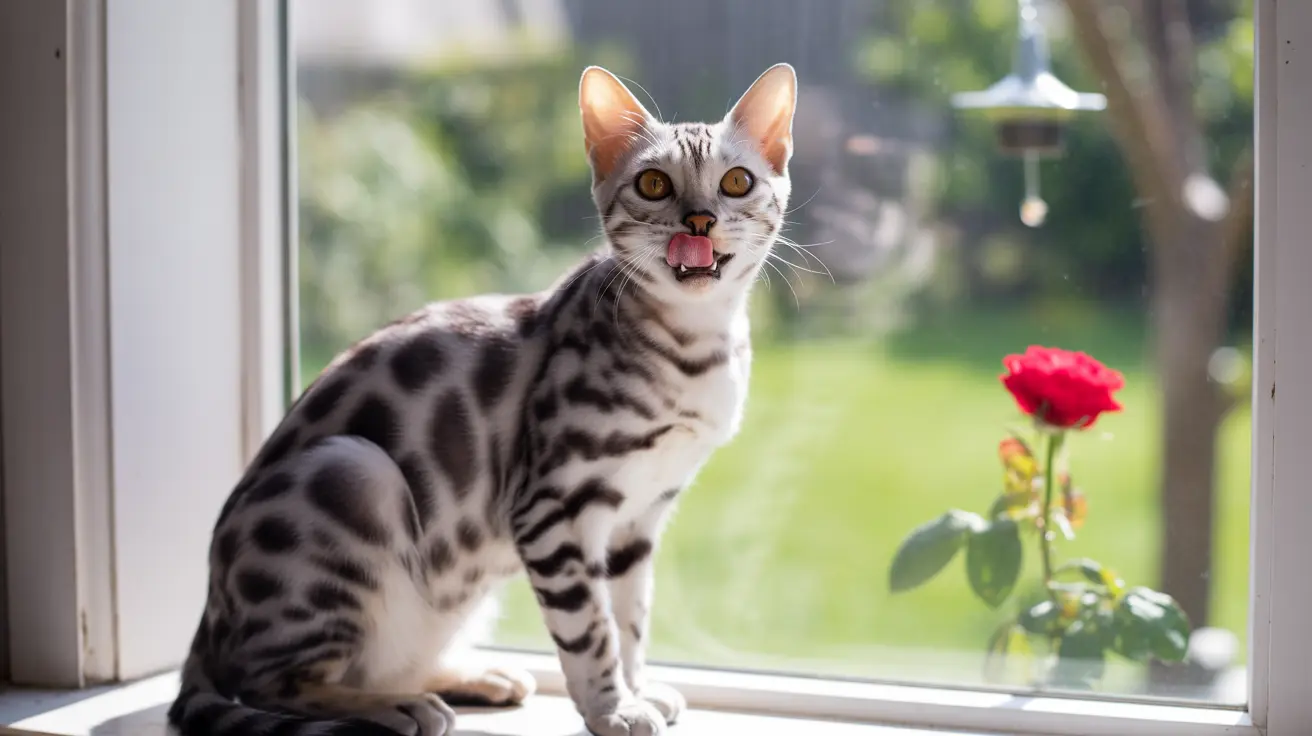Medical Causes of Persistent Meowing
When your cat won't stop meowing, medical issues should be your first consideration. Various health conditions can trigger increased vocalization:
Pain and Discomfort
Cats often meow excessively when experiencing pain from injuries, arthritis, or dental problems. These vocalizations may be sharper or more urgent than usual meows.
Thyroid and Kidney Issues
Hyperthyroidism and kidney disease, particularly common in older cats, can cause increased vocalization along with other symptoms like weight loss, increased appetite, and changes in water consumption.
Behavioral Reasons for Excessive Meowing
Attention-Seeking Behavior
Cats quickly learn that meowing gets their owner's attention. This learned behavior can develop into a persistent habit if reinforced through responses to their vocalizations.
Stress and Anxiety
Environmental changes, new pets, or disruptions to routine can trigger anxiety-related meowing. Creating a stable environment and maintaining consistent schedules can help reduce stress-related vocalization.
Age-Related Vocalization
Senior Cat Concerns
Older cats may meow more frequently due to cognitive dysfunction syndrome (cat dementia). This condition can cause confusion, especially at night, leading to increased vocalization.
Management Strategies
For senior cats, maintaining a well-lit environment at night and establishing consistent routines can help minimize confusion-related meowing.
Solutions for Excessive Meowing
Immediate Actions
- Schedule a veterinary check-up to rule out medical issues
- Maintain consistent feeding times
- Provide environmental enrichment
- Consider using pheromone diffusers for anxiety
Long-term Management
Establish a routine that includes regular play sessions, consistent meal times, and dedicated attention periods. This structure helps reduce anxiety-driven meowing and provides outlets for energy and interaction.
Prevention and Training
To prevent excessive meowing from becoming a chronic issue:
- Only respond to appropriate vocalizations
- Create an enriching environment with toys and climbing spaces
- Maintain regular veterinary check-ups
- Address medical issues promptly
Frequently Asked Questions
Why will my cat not stop meowing and could it be a sign of pain or illness?
Yes, persistent meowing can indicate pain or illness. If your cat's vocalization pattern changes suddenly or is accompanied by other behavioral changes, consult a veterinarian promptly.
How can I tell if my cat's excessive meowing is due to hyperthyroidism or cognitive dysfunction?
Hyperthyroidism typically comes with increased appetite, weight loss, and hyperactivity, while cognitive dysfunction often involves confusion, especially at night, and changes in normal behavior patterns.
What behavioral reasons cause cats to meow nonstop, and how can I reduce attention-seeking vocalization?
Common behavioral causes include boredom, anxiety, and learned attention-seeking. Reduce this behavior by ignoring excessive meowing, rewarding quiet behavior, and providing environmental enrichment.
Why does my senior cat meow more at night, and what can I do to help with nighttime disorientation?
Senior cats often meow at night due to cognitive dysfunction or disorientation. Help by providing nightlights, maintaining familiar surroundings, and establishing a consistent bedtime routine.
When should I take my cat to the vet for excessive meowing linked to changes in appetite or litter box habits?
Any changes in meowing accompanied by alterations in eating, drinking, or litter box habits warrant immediate veterinary attention, as these could indicate serious health issues.
Conclusion
While persistent meowing can be challenging to address, understanding its root causes is essential for finding effective solutions. Whether the cause is medical, behavioral, or age-related, there are various strategies available to help manage excessive vocalization. Remember that patience and consistency are key when implementing any behavior modification plan.






